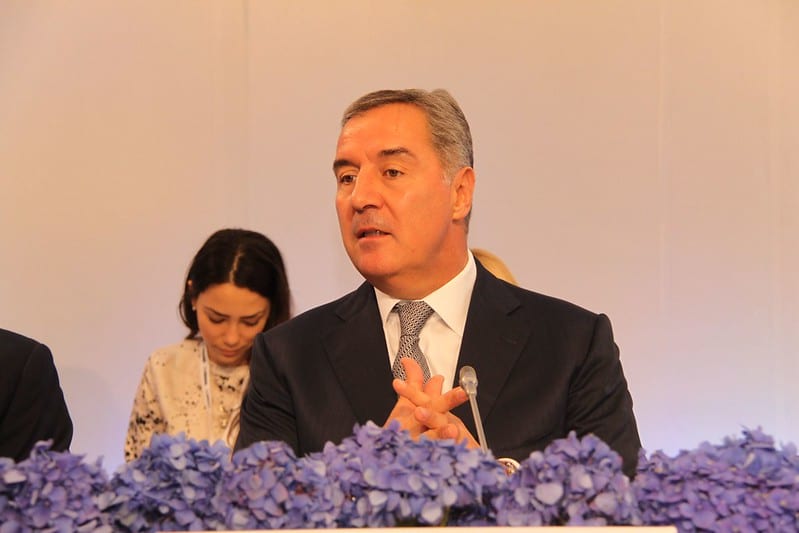In Montenegro, voters went to the polls last Sunday. It was an exciting election day, as the opposition coalition 'For the Future of Montenegro' was neck-and-neck with the Democratic Party of Socialists (DPS), which has been in power for 30 years. For voters, it was a choice between this pro-European party in power and the pro-Serbian and Russian opposition coalition. 75.9% of registered voters cast their vote, the highest turnout Montenegro has ever had since the introduction of the current electoral system. There was confusion after the first exit polls, as the DPS and the opposition coalition said: that they had gained enough seats in parliament to form the next government. In the end, the opposition coalition along with other opposition parties turned out to have enough seats to form a new majority.
Criticism of President Djukanovic
President Djukanovic has led Montenegro for 30 years. Although Montenegro was united with Serbia after the fall of Yugoslavia, it split from it in a referendum in 2006. Djukanovic has therefore set his sights on the west. In 2017, Montenegro joined NATO and has been a candidate for EU membership since 2008.
Despite these developments, the country remains divided as a third of the population is Serbian. Meanwhile, Djukanovic did emerge as an autocratic leader. Corruption is the order of the day for Djukanovic, and partly because of this, there were still protests against Djukanovic in 2019. Although the opposition supported those protests, it did not take a leading role in organising them.
Controversial law against Serbian Orthodox Church
On top of criticism for various corruption scandals, Djukanovic's government introduced a controversial law on religion in December 2019. Under this law, all religious groups must register and prove that they owned property before 1918, when Montenegro joined Yugoslavia. According to the Serbian Orthodox Church, the country's largest religious organisation, this is a direct attack on its property. Djukanovic probably introduced this law because of the country's debts, but is facing a lot of opposition.
The division between the government and the church has deeply divided the country. The church actively supported the opposition in their campaign against the government, which increased support for the pro-Russian and Serbian coalition.
Elections with two key players
The pro-European Democratic Party of Socialists (DPS) participated in the elections as the incumbent party, with the pro-Russian coalition For the Future of Montenegro as its biggest challenger. The largest opposition party, the Democratic Front, is also part of the coalition and opposed Montenegro's NATO membership, among other things. In addition, the Socialist People's Party, the People's Movement and some activist organisations are in the coalition, which also has close ties with the Serbian Orthodox Church. The leader of the opposition coalition, Krivokapic, believes his coalition honours both Montenegro's multi-ethnic character and Orthodox tradition.
The Peace is our Nation and Black on White coalitions also participated in the elections. A number of smaller parties also participated, including the Social Democrats, the Bosnian party and two Albanian parties. These often supported the DPS in the past.
The DPS and the opposition coalition were not far apart: DPS got 35% of the votes, compared to 32% for the opposition coalition. However, the coalition got the support of the other parties, allowing them to jointly get 41 of the 81 seats. Now the parties have to get together to form a government. Even though they seem to fit well together given their strong cooperation during the campaign, it is unclear whether they will come up with the same solutions to the problems prevailing in Montenegro. Some parties are pro-EU and pro-NATO, while others are anti-NATO and pro-Russia.
Despite the fact that the gains for the opposition already seem to have been made, Djukanovic is not giving up yet: since his party has 30 seats, they could still form a majority with the Social Democrats, the Bosnian Party and the two Albanian parties. Djukanovic could also use his constitutional power to thwart the opposition.
Rising tension
Ethnic tensions have risen in the country since the elections. Bosnians have been threatened in several villages and the windows of the Islamic community in Pljevja have been smashed. Djukanovic accuses the pro-Serb opposition of fomenting tensions because they spread nationalist ideas. On the contrary, the opposition says that these tensions are fuelling the DPS, which likes to criticise the opposition coalition.
Due to the inconclusive election results, it is clear that the country is very divided. In addition, opposition cooperation would provide a narrow 41-seat majority, which is very tight. After the elections, many people were on their feet with Serbian flags, which may scare off Montenegrins. Serbian nationalism may also cost the coalition For the Future of Montenegro support, and thus they could still lose their narrow majority. By announcing just a day after the result that they want to govern with experts, the entire opposition coalition seems to realise that they need to form a government quickly, before tensions rise further.
By: Annelou Snippe
Photo: Flickr





